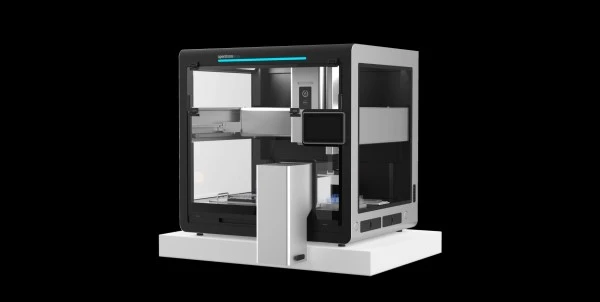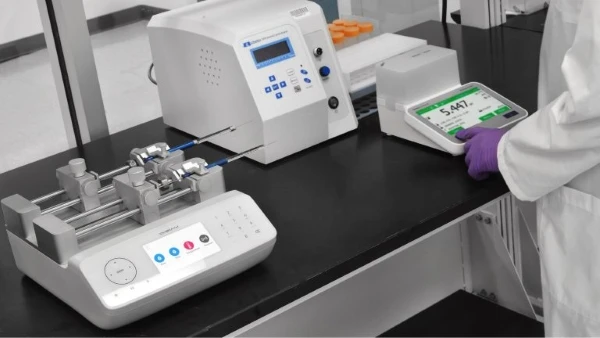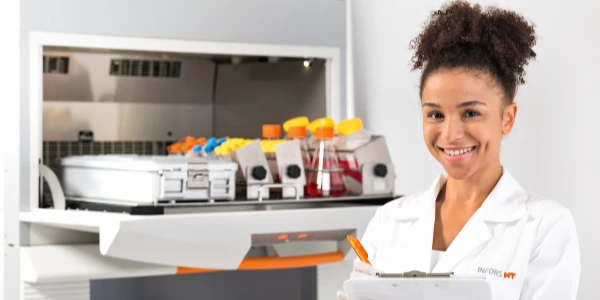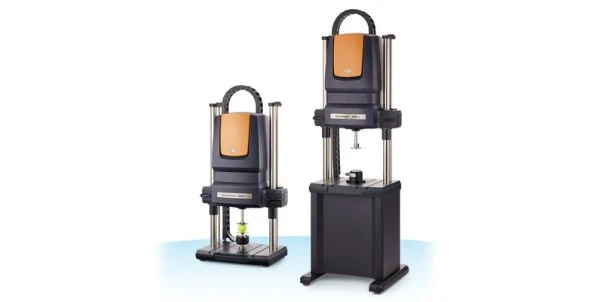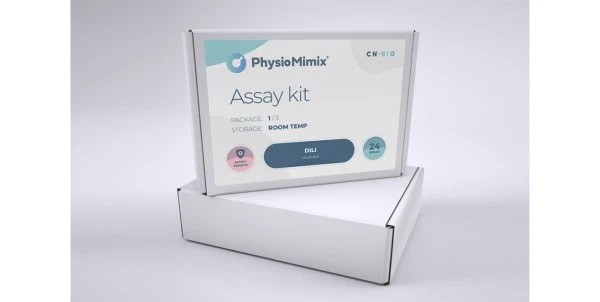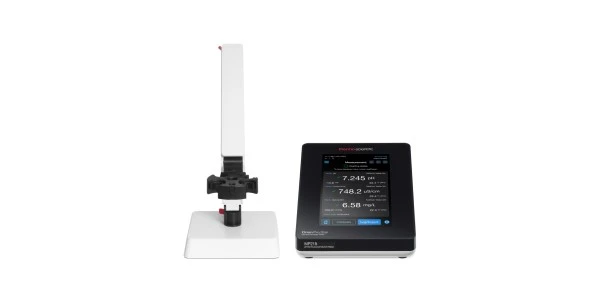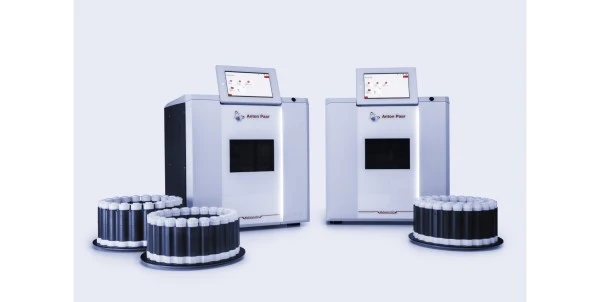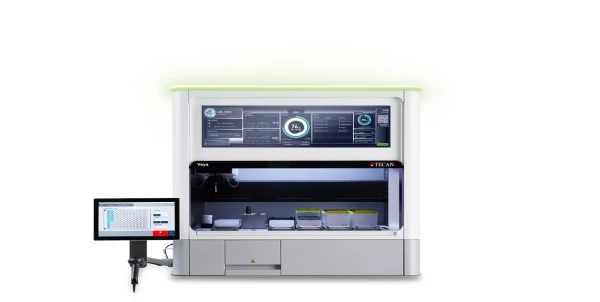
The Best Lab Refrigerators: A Buyer's Guide to Price and Features
Laboratory refrigerators are essential for storing temperature-sensitive samples, reagents, and vaccines, ensuring they remain stable and effective. These refrigerators are widely used in research labs, clinical settings, and industrial facilities. Choosing the right lab refrigerator involves considering factors such as temperature control, storage capacity, and energy efficiency to meet your specific needs. This guide provides an overview of different types of lab refrigerators, key features to consider, and a price guide to help you make an informed decision. General Purpose Refrigerators are designed for storing non-critical items, such as reagents, buffers, and media, at stable temperatures typically ranging from 2°C to 8°C. These refrigerators are suitable for everyday use in a variety of laboratory settings and are cost-effective options for basic storage needs. Applications: Storage of reagents, media, chemicals, and general lab supplies. Under-Counter Refrigerators are compact units designed to fit under laboratory benches or counters, saving valuable space in crowded labs. They offer easy access to frequently used items and are ideal for storing small volumes of samples and reagents. These refrigerators are commonly used in clinical and research labs. Applications: Small sample storage, reagent storage, and point-of-use applications. Chromatography Refrigerators are specially designed to accommodate chromatography equipment and mobile phases. They typically feature glass doors for easy viewing of contents and adjustable shelving to fit various equipment sizes. These refrigerators provide precise temperature control to maintain the stability of sensitive compounds. Applications: Storage of chromatography columns, reagents, and samples; integration with chromatography systems. Flammable Material Refrigerators are designed for storing flammable and volatile chemicals safely. These refrigerators feature spark-free interiors and components to minimize the risk of ignition. They are essential for laboratories that handle hazardous materials and require compliance with safety regulations. Applications: Storage of flammable chemicals, solvents, and reagents. Explosion-Proof Refrigerators are built to withstand and contain internal explosions, providing an additional level of safety for storing highly volatile and hazardous materials. These refrigerators are used in environments where the presence of explosive gases or vapors is a concern. Applications: Storage of highly volatile chemicals, hazardous materials, and compliance with stringent safety standards. Pharmaceutical Refrigerators are designed specifically for storing vaccines, medications, and other pharmaceutical products that require precise temperature control. These refrigerators feature digital temperature monitoring and alarms to ensure the safe storage of critical medical supplies. Applications: Storage of vaccines, medications, blood samples, and pharmaceutical products. Accurate and stable temperature control is essential for maintaining the integrity of stored samples and reagents. Choose refrigerators with precise temperature control systems, digital displays, and alarms for monitoring temperature fluctuations. Consider models with temperature ranges suitable for your specific storage needs. Consider the storage capacity of the refrigerator and the type of items you need to store. Look for models with adjustable shelving, drawer options, and adequate space to accommodate various sample sizes and types. Refrigerators with flexible storage configurations provide greater versatility for different applications. Energy efficiency is important for reducing operating costs and environmental impact. Look for lab refrigerators with energy-efficient compressors, insulation, and cooling systems. Energy Star-rated models offer improved efficiency and lower energy consumption. Safety features are critical, especially when storing hazardous or flammable materials. Choose refrigerators with spark-free interiors, explosion-proof designs, and lockable doors to prevent unauthorized access. Safety alarms for temperature deviations and power failures provide additional protection. Laboratory refrigerators should be built to withstand the rigors of daily use. Look for models constructed from high-quality materials, such as stainless steel, for durability and corrosion resistance. Reliable door seals, sturdy hinges, and robust construction contribute to the longevity and reliability of the unit. Consider the ease of maintenance and availability of technical support. Refrigerators with accessible components, self-diagnostic features, and clear maintenance protocols ensure long-term reliability. Manufacturer warranties and service plans can provide peace of mind and support in case of issues. Selecting the best lab refrigerator involves considering factors such as temperature control, storage capacity, energy efficiency, and safety. By choosing high-quality refrigerators that meet your specific needs, you can ensure the safe and effective storage of temperature-sensitive items in your lab. For more detailed specifications or to view models, visit LabX.com to browse products and gain additional insights to help in making the best choice for your lab's needs.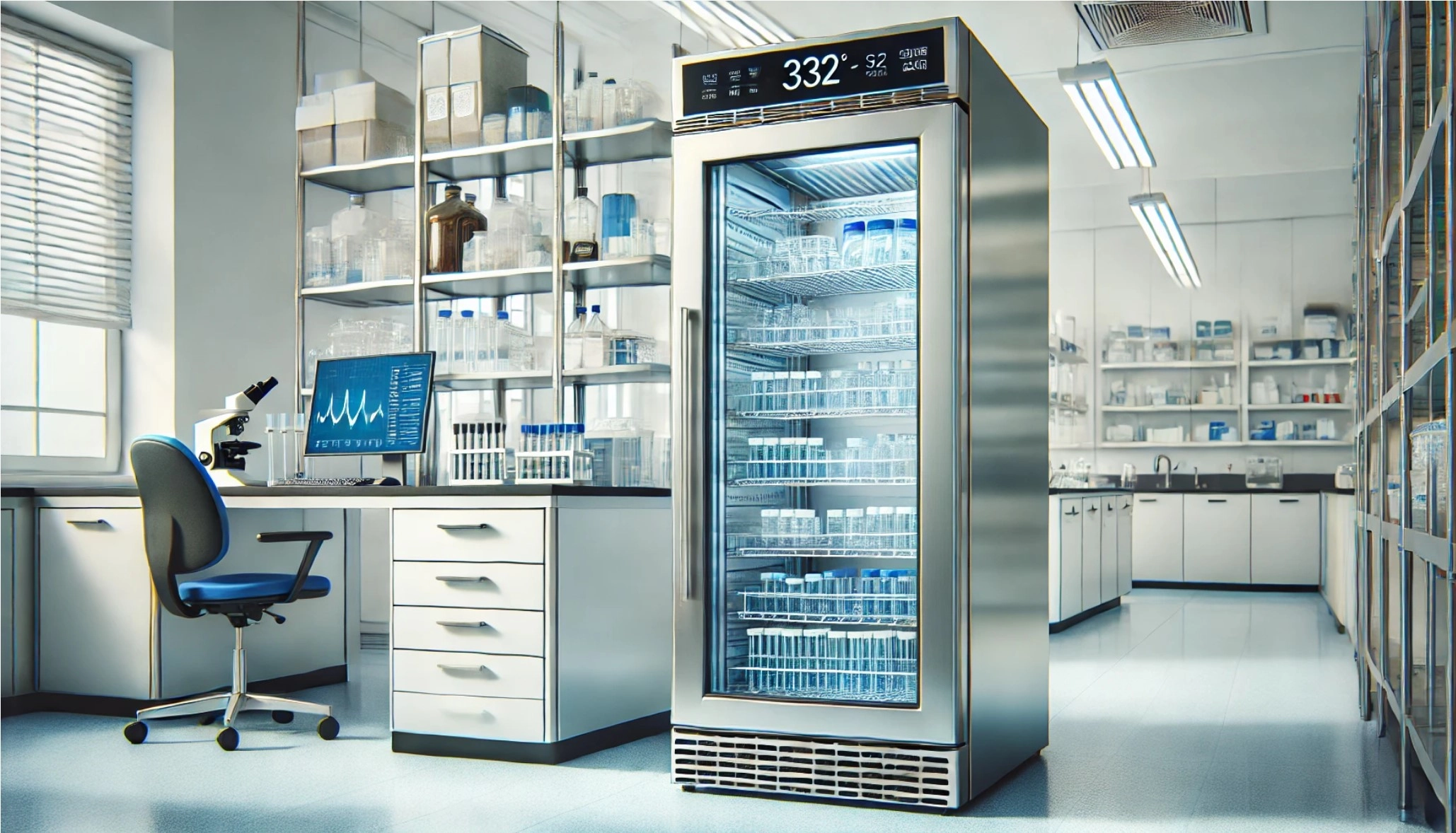
Temperature Control, Capacity, and Energy Efficiency are Key Considerations to Find the Best Lab Refrigerators at the Best Price
Types of Lab Refrigerators
1. General Purpose Refrigerators
2. Under-Counter Refrigerators
3. Chromatography Refrigerators
4. Flammable Material Refrigerators
5. Explosion-Proof Refrigerators
6. Pharmaceutical Refrigerators
Key Features to Consider When Buying Lab Refrigerators
1. Temperature Control and Stability
2. Storage Capacity and Configuration
3. Energy Efficiency
4. Safety Features
5. Build Quality and Durability
6. Maintenance and Support
Lab Refrigerator Price Guide
View all Lab Refrigerator Listings on LabX.com
